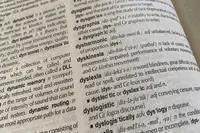Fortunately, depression is a treatable disorder, and there are several effective treatment options. The choice of treatment or combination of treatments will depend on the severity of the depression, the individual characteristics of the patient, their preferences, and the assessment of a mental health professional.
Treatments are generally divided into two main categories: psychotherapy [talk therapy] and pharmacological treatments [antidepressant medications], although lifestyle changes are also considered.
Psychotherapy, such as Cognitive Behavioral Therapy [CBT], Interpersonal Therapy [IPT], or Behavioral Activation Therapy, helps people identify and change negative thought and behavior patterns, develop coping skills, solve problems, and improve relationships.
It is the first-line treatment for mild to moderate depression. Antidepressant medications work by regulating neurotransmitters in the brain. There are different classes [SSRIs, SNRIs, tricyclics, MAOIs, atypicals], and a specialist doctor will determine which is most appropriate, considering symptoms, possible side effects, and interactions with other medications. They are usually recommended for moderate to severe depression, often in combination with psychotherapy.
It is important to note that antidepressants are not addictive when used under medical supervision, and their effects are not immediate, it may take several weeks to notice a significant improvement.
In addition, lifestyle changes such as regular exercise, a balanced diet, good sleep hygiene, stress management techniques [mindfulness, meditation], and avoiding alcohol and drugs can effectively complement formal treatments. The [best] option is always the one decided upon jointly with a professional after a thorough evaluation.













































